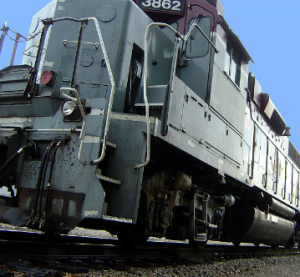Time is Money: Diesel Engine Trains Benefit the Economy and the Supply Chain
Leave a CommentRailroads have been used to transport goods since the early 1800s. Using the railroad system meant that companies could reach a plurality of consumers more quickly.
The faster products got to their destination, the more profit companies made. Since that time, railroads have played a vital role in bringing products to customers all over the U.S and the world.
Today, there are several types of diesel trains which are broken down by their transmission type: mechanical, electrical, hydraulic, steam, and pneumatic. Without diesel engines another form of power would have to be used. Electricity is expensive and comes with a high initial cost because it needs a third rail system or catenary system. The system consists of overhead lines or wires which run the electricity to the train. Put two and two together – an electric system isn’t a reliable source because obstacles like power outages occur and lines often don’t work well enough to pull heavy cargo.
In addition to being more reliable, diesel engines are also capable of moving a ton of freight for 500 miles on just a gallon of fuel. Freight that is moved by rail is away from roads reducing wear and tear of them. Rail transportation also helps to keep people safe with less road congestion. Although semis may seem faster, trains can now move freight faster than ever before across multiple states too. As rail and inland connections increase their logistics and productivity, rail becomes even more practical and efficient.
Although some would argue that railroads disturb ecosystems, hinder migration routes, and increase noise, some companies have ensured they are working to fight any negative impact of the rail system. According to Go Green Plus, “Most companies have a Code of Conduct having environmental compliance and safety requirements to operate accordingly to protect the environment and human health and safety. They also have procurement standards which look at the total cost of ownership (such as the quality, service, administration, and price) and documentation of compliance with all applicable laws and regulations.”
Here at Central Diesel, we are a distributor of engines, premier fuel injection systems, and parts. We offer rebuilding, parts, and other custom services to diesel powered equipment markets. We are an authorized, factory-trained, fuel injection and diesel engine specialist, with the goal to meet or exceed customer expectations. Our crew also builds custom generator sets, irrigation pumps, hydraulic pump packages and power units. To learn more about Central Diesel, please read our blog, follow us on Twitter, Facebook or connect with us on LinkedIn. We also invite you to contact us learn more about ways we can help you.





